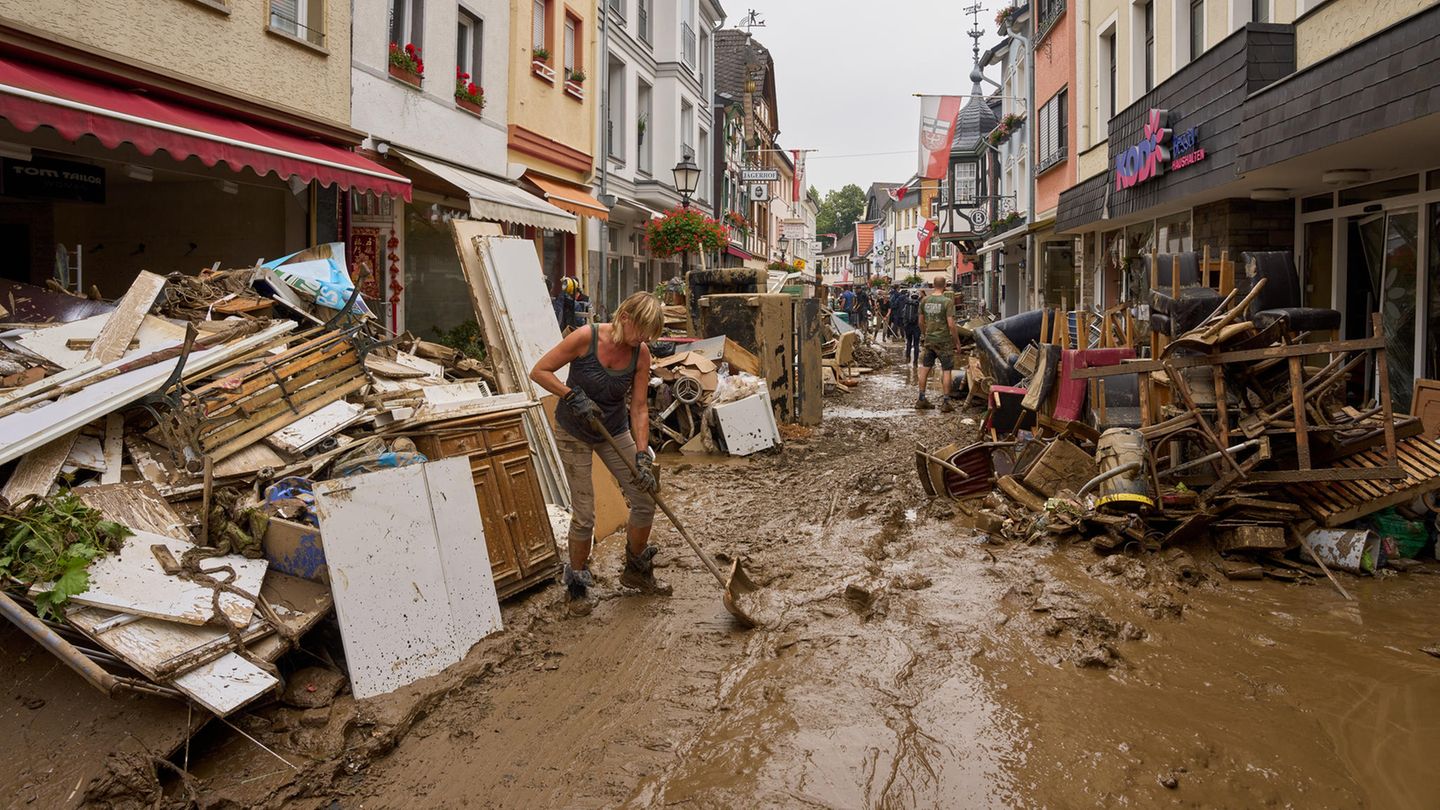Press reviews
The discussion about disaster control in Germany is gaining momentum. The flood revealed at least some shortcomings, commentators say. And warn: the next crisis will come.
After the devastating flood disaster, politicians and associations warned against starting to come to terms with the matter too early or assigning blame. It is now a matter of first analyzing the processes surrounding the current flood disaster in detail to see whether and where processes have not worked, said the CDU interior politician Mathias Middelberg “New Osnabrück Newspaper” (NOZ). This applies above all to the level of the federal states, because they are primarily responsible for disaster control. He expressly warned against premature assignments of blame or reform proposals.
Commentators can – in part – gather behind the warning. “But it would be negligent not to want to learn from the tragedy”, thinks about the “New Osnabrück Newspaper”. There would “Questions that urgently need an answer”, so the “Nuremberg News”. The “North Bavarian courier” sees “rightly” a debate about civil protection and disaster relief arise. The press reviews.
“A country like Germany has to be prepared for this”
“New Osnabrück Newspaper”: “In view of the rubble desert, it is certainly not the time for know-it-alls, populist climate slogans or even calls for Federal Interior Minister Horst Seehofer to resign, as the left are doing. But it would be negligent not to want to learn from the tragedy. Because extreme weather events such as heat waves, heavy rain and storms will increase in frequency and intensity. Germany must learn to prepare for the inevitable. Much has been missed. There is increasing evidence that many people were not warned at all or only inadequately warned about the floods. The federal, state and local authorities must therefore ask themselves critically why the alarm chain did not work.”
“Nuremberg News”: “The much scolded Federal Minister of Economics Peter Altmaier is correct in his opinion: When the helpers in the flooded communities have done the most important work and when the people who have become homeless are again housed reasonably decently, then the disaster must be dealt with immediately. Did our early warning systems work? Were the people evacuated as quickly as possible? Would better technical equipment of the rescue workers have been necessary? Does civil protection need to be improved in endangered regions? These are all questions that urgently need an answer.”
“badish newspaper” (Freiburg): “It is also necessary, after the shock of this flood, to look at more far-reaching challenges. Climate change comes first, but that alone will not be enough. The question that needs to be asked is whether politicians are doing everything they can to at least cushion the effects of global warming, some of which are already established. No more buildings in endangered zones, less sealed surfaces – these are only two of the many controversial issues. On the other hand, it is dishonest to pretend that civil protection has failed. Anyone who claims that Germany ranks here on the level of a developing country is not only insulting the self-sacrificing work of many thousands of rescuers and helpers. Above all, he wants to distract from the fact that the risk of such disasters increases with climate change. A broad awareness of this would be a prerequisite for a strictly ecological policy.”
“Stuttgart newspaper”: “In fact, there is a lack of warning system. However, the federal states are responsible for disaster control. In addition, anyone who wanted to be warned could have been warned: The German Weather Service had announced a storm with extreme rainfall in good time – also via its app. A recently presented concept for reforming disaster control amounts to more powers for the federal government. That would make sense. Over-saturation with warning notices may also lead to fatal ignorance. More decisive than new sirens and even more alarmism on the internet would be resolute action against building sins and planning deficiencies that increase the effects of such natural disasters.”
“North Bavarian courier” (Bayreuth): “The Federal Office for Civil Protection and Disaster Assistance has no direct powers in the event of disasters in peacetime; that is the task of the federal states. A debate is rightly starting now as to whether this should change. A main problem, however, is that a large number of municipalities and cities still operate an ostrich policy and hope that they will never be hit by heavy rain, hail and floods.”
“Ludwigsburg district newspaper”: “Now, after heavy rain, floods and the destruction of entire towns, answers are needed as to whether such a flood could not have been expected, and whether it should have been. In a highly developed country, emergency plans should be available and effective. In any case, many people in the affected areas could not be warned at the speed that a hundred-year flood would have required. And: How should you make an emergency call if there is no network? Even in modern times, the tried and tested old siren sometimes helps better than a digital app design solution, if you still have it. The next crisis – as a pandemic, flood or drought – is guaranteed to come. And a country like Germany has to be prepared for this.”

See in the video: Craftsmen after an emotional flood call for help – “We all have goosebumps!”
David William is a talented author who has made a name for himself in the world of writing. He is a professional author who writes on a wide range of topics, from general interest to opinion news. David is currently working as a writer at 24 hours worlds where he brings his unique perspective and in-depth research to his articles, making them both informative and engaging.




